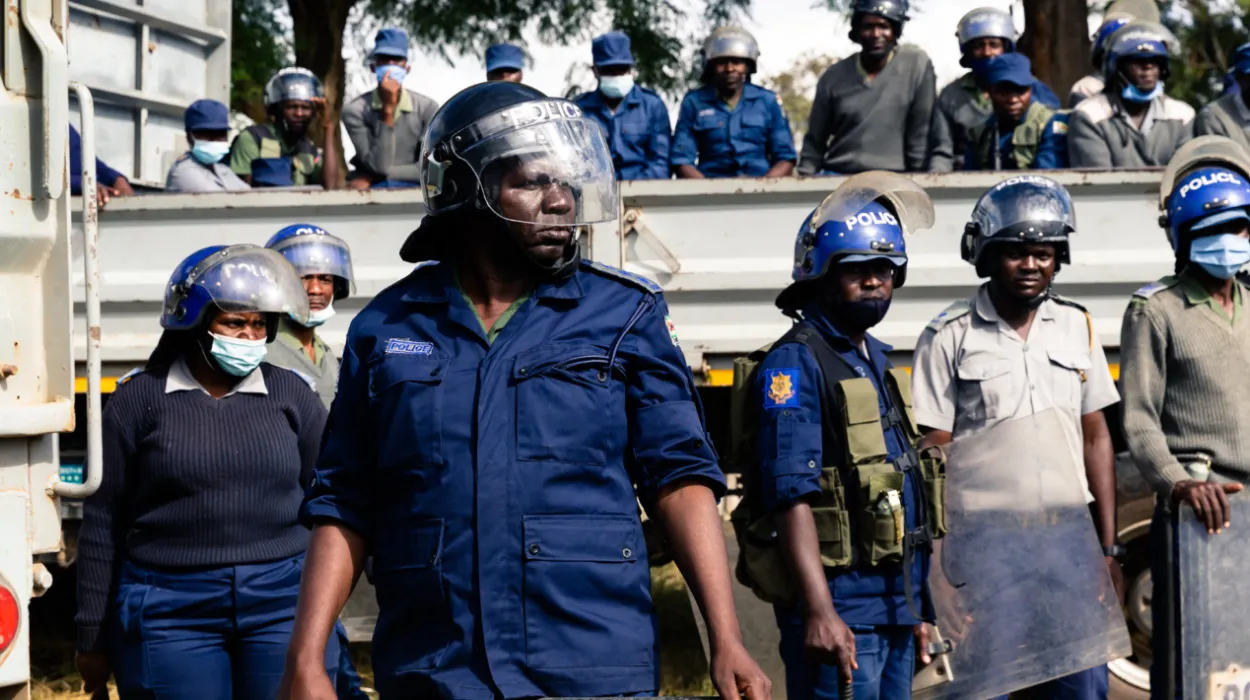South Africa (Transatlantic Today) —As Zimbabwe prepares to host the Southern African Development Community (SADC) summit on August 17, 2024, in Harare, human rights organizations Amnesty International and Human Rights Watch are calling on authorities to halt their ongoing crackdown on opposition and civil society members. They demand the immediate and unconditional release of individuals arrested for exercising their rights.
The groups emphasize the need for a thorough and effective investigation into allegations of torture and mistreatment of detainees, insisting that any suspected perpetrators be held accountable through fair legal proceedings. With the SADC leadership soon transitioning to Zimbabwean President Emmerson Mnangagwa, there is a pressing need for the regional body to take a firm stand against these human rights violations.
Khanyo Farise, Amnesty International’s Deputy Regional Director for East and Southern Africa, highlighted the severity of the situation: “Since mid-June, Zimbabwean authorities have conducted a massive crackdown on dissent. Over 160 individuals have been arrested, including elected officials, opposition members, union leaders, students, and journalists.” He emphasized that authorities must cease these violations and release all detainees immediately.
The crackdown began on June 16 when police raided the home of Jameson Timba, leader of the opposition Citizens Coalition for Change (CCC), during a private gathering, leading to the arrest of 78 individuals. Security forces employed tear gas and batons, resulting in serious injuries to attendees, one requiring surgery. The detained were charged with “gathering with intent to promote public violence and disorderly conduct,” and held unlawfully for over two days without being brought before a court. Although two children were released and one adult granted bail, 75 people remain in arbitrary detention.
Subsequent arrests continued, including 44 members of the Zimbabwe National Students Union (ZINASU) on June 24, who were forced to pay fines for “disorderly conduct.” President Mnangagwa warned on June 27 against “opposition political parties bent on peddling falsehoods,” following which police violently disrupted peaceful protests demanding the release of those arrested at Timba’s residence. Further intimidation came from Information Minister Jenfan Muswere, who threatened opposition elements and civil society organizations.
The crackdown intensified as the SADC summit approached. On July 31, state agents forcibly removed four activists from a plane at Harare Airport, detaining them for eight hours and subjecting them to torture. These activists were charged with “disorderly conduct” for participating in a protest. Since August 1, more than 30 individuals have been arrested across Zimbabwe, primarily in relation to protests and opposition support.
Idriss Ali Nassah, senior Africa researcher at Human Rights Watch, criticized the Zimbabwean government for its failure to uphold basic human rights: “The serious violations we are witnessing, including violent attacks, abductions, torture, arbitrary arrests, and other abuses against the opposition, are a clear indication of this failure.” He also noted that SADC has remained silent on these issues, urging the bloc to take a decisive stance against the ongoing crackdown.
The organizations underscore that the deteriorating human rights situation in Zimbabwe is directly connected to the government’s preparations for the SADC summit. As President Mnangagwa prepares to assume leadership, it is crucial for SADC to leverage this opportunity to advocate for human rights throughout the region, in accordance with the SADC treaty.
In conclusion, Amnesty International and Human Rights Watch are calling on SADC leaders, particularly President João Lourenço of Angola and Zambian President Hakainde Hichilema, to publicly condemn the Zimbabwean government’s actions and demand the release of all unjustly detained individuals. The time to act is now, before the situation deteriorates further and undermines the region’s commitment to human rights.


























